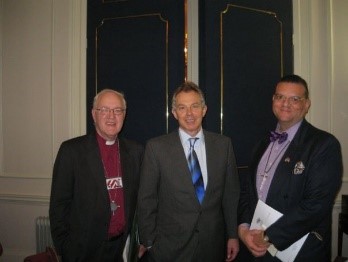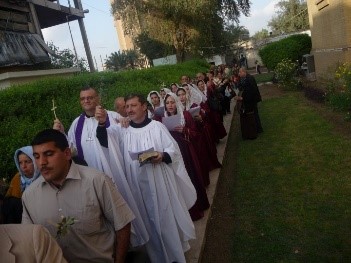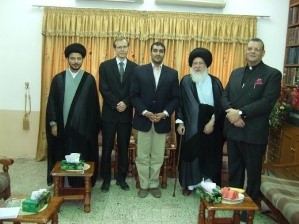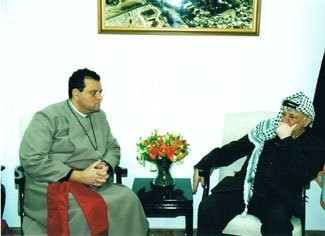History of Canon White
After training in surgery and anaesthetics at St. Thomas’ hospital, London, Canon White practised there and later directed the Cardiac Arrest Team. In the later 1980s, he left the medical profession and trained for ordination at Ridley Hall, University of Cambridge, and studied Judaism at the Hebrew University of Jerusalem. Although he has since been awarded nineteen honorary doctorates, Canon White initially held a doctorate in anaesthesiology and two doctorates in theology. He is an Eric Lane Fellow at Clare College, Cambridge and a Fellow of Harvard University. Canon White served as a Curate at St. Mark’s, Battersea Rise in London after which he became Vicar of the Church of Ascension, Balham Hill. During this time, he entered the political sphere, serving as a Wandsworth Borough Counsellor and acting as Deputy Chairman of Social Services. Canon White was the only Conservative politician who was also an Anglican priest at the time.
In 1998, Canon White was installed as the Director of International Ministry for the Diocese and Cathedral of Coventry and, soon after, he became the Director of the International Centre for Reconciliation at Coventry Cathedral. He was appointed as the Archbishop of Canterbury’s ‘Special Envoy to the Middle East’ – the first to take up the position since Terry Waite.
Following this commissioning, Canon White became actively involved in initiating and leading negotiations during the 2002 Siege of the Church of the Nativity in Bethlehem. He also initiated peace agreements and participated in the draft the First Alexandria Declaration of the Religious Leaders of the Holy Land and the Baghdad Religious Accord. Both of these declarations were highly instrumental in bringing together key Christian, Jewish, and Muslim religious and political leaders.
As part of his work in the Middle East, Canon White was extensively engaged in high level conflict resolution, hostage negotiation and religious and political reconciliation. Canon White’s principal aim was to gain the trust of key religious figures on both sides in various conflict areas in order to mediate and re-establish the dialogue between opposing groups. The Foundation for Relief and Reconciliation in the Middle East was founded and presided over by Canon White in 2005 as part of his reconciliation work in Iraq and throughout the Middle East as a whole.
From 1998 to 2014 Canon White served as the Anglican vicar of St George’s Church in Baghdad – which, under his leadership, grew to be one of the largest and most dynamic Anglican congregations in the Middle East. The church also served as a base for a medical clinic and as a source of extensive financial and humanitarian aid for the surrounding community.
In November 2014, due to increased terrorist risks and the endangerment of his life, a private royal aircraft was arranged in order to facilitate Canon White’s departure from Baghdad as ordered by the Archbishop of Canterbury. During this time of great upheaval, suffering and persecution, most of the surviving community of Canon White’s several-thousand-member Iraqi congregation (as well as many Iraqi citizens) fled to Jordan where they currently reside as refugees without any financial aid from government embassies, the United Nations or the Jordanian government. Amongst other key projects, Jerusalem MERIT continues to respond to this crisis by providing for the financial, medical, educational and spiritual needs of the Iraqi refugee community living in Jordan.







